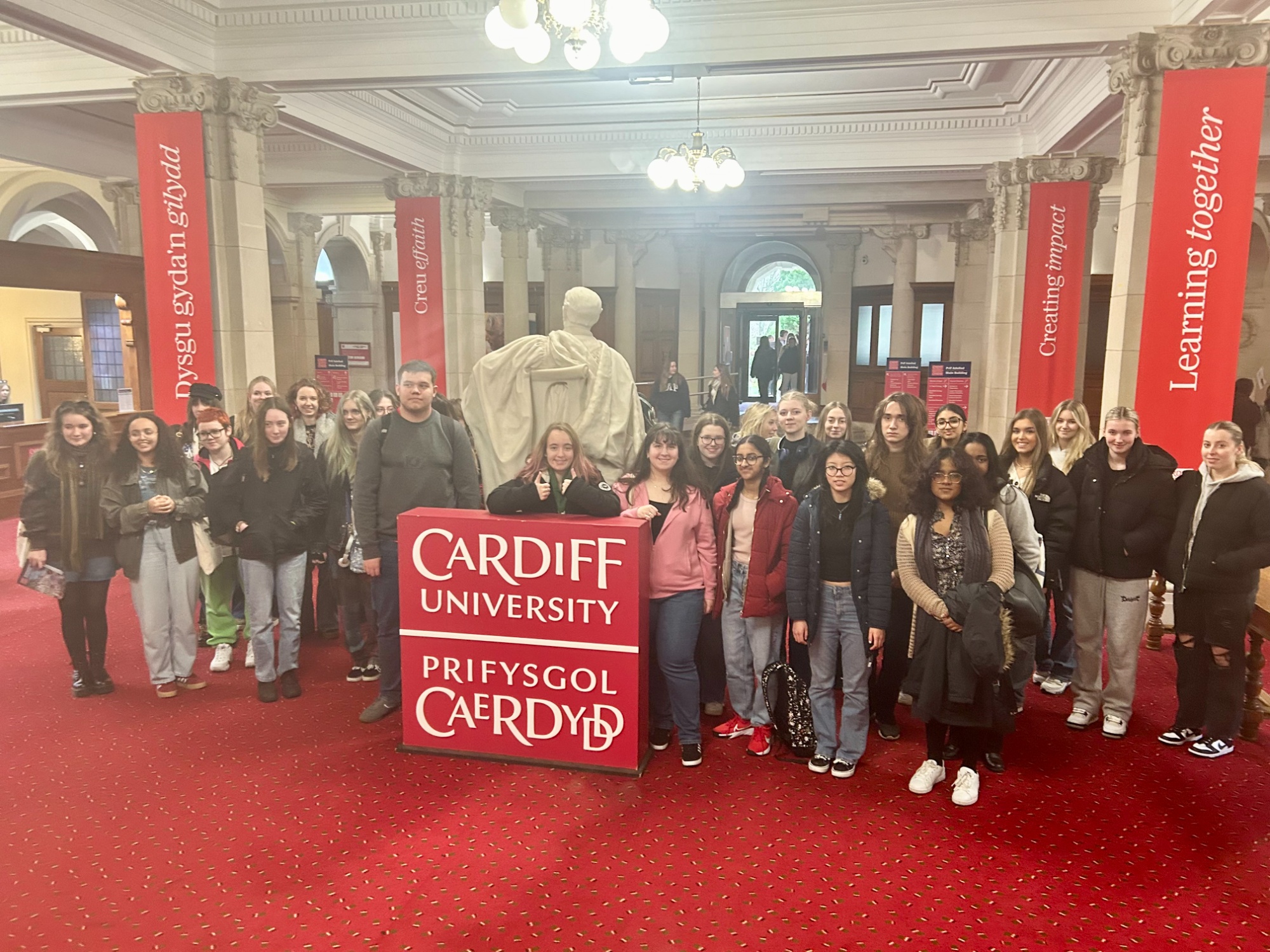
Life after Sixth Form can be a daunting thought that is much easier to push to the back of our minds rather than deal with it head-on. So where can we start to make the process easier and less overwhelming, given that it's an inevitable part of our future? In this article, I spoke to some of our amazing Sixth Form teachers to gather their advice and ideas on how we can approach our next steps with confidence!
Additionally, you’ll find some helpful links for work experience opportunities, application advice, and university information, so have a read and don’t hesitate to ask your subject teachers or Mrs Nicklin for further guidance.
By Poppy McGuire Yr 12
What are my options?
You are not on your own. Take time to consider what you want to do with your future. If you see yourself pursuing a degree, university is probably the best route. Have a look into possible apprenticeships if you prefer to work while you learn. Or you could investigate taking a gap year to discover what the world has to offer, and what you can offer it!
- Where can I find out about my options?: Unifrog
- University advice: University compare website and The Uni guide information
- Find out about medical education and research: Medical school advice
Work experience
Work experience can be so difficult to secure as there is so much competition - thousands of students across the country are vying for the same opportunities, so how can you stand out? I asked our teachers their advice:
- Conduct research for your chosen profession or field, to find out what work experience is desired, expected or relevant.
- Apply early and widely and don't be afraid to politely chase responses.
- If a good opportunity is offered to you that falls outside of the work experience week, talk to Sixth Form about whether time off can be permitted.
- Go into places in person or give them a call. Many places will get hundreds of emails so a personal touch can often go a long way, dropping in a letter personally will give them a chance to meet you and see how dedicated you are.
- Make the most of your family and friends’ contacts, a reference can go a long way!
Check out these links for help finding work experience in specific fields:
Medicine: Science and technology work experience or speak to Medsoc within school for more information
Mathematics, Accounting and Finance : Springpod accountancy experience
Law and History: Gloucestershire archives work experience, Springpod virtual law experience. Email local MPs / law firms to see if they have any available work within the law field
Journalism: Taylor & Francis journalism work experience
Engineering: Small Piece engineering work experience
Apprenticeships
Apprenticeships are a popular option for students pursuing careers that offer them. However, they can be highly competitive and difficult to find. I asked our teachers for top tips on securing the best opportunities.
Mrs. Knott emphasised the importance of research, encouraging students to visit potential workplaces before applying. She also noted that entry requirements for some apprenticeships can be as high as those for Russell Group universities, so students should give them their full attention and effort. Mrs Nicklin advises tailoring applications to highlight individual skills and demonstrate a clear understanding of the company.
Learn more about apprenticeships: Government apprenticeship advice, Finding apprenticeships, Government apprenticeship help
University and UCAS applications
University is a popular option for many students because it offers a wide range of opportunities. Whether you are drawn to academic excellence or looking forward to building new friendships and experiences, the journey can be incredibly exciting.
However, the application process can often feel stressful, making it easy to forget how fortunate we are to have this opportunity. So, how can we shift our perspective?
Below is a brief list of what is needed for university applications:
- Register with UCAS and complete personal details, education history, and employment history
- Select your course choices carefully (this can be confusing, so make sure you speak to subject leads, teachers, and figure out what you want to do in the future) before making any decisions. And remember that if your passion and career align, it will be so much easier)
- Write a personal statement with the support of school resources and advice.
- Submit your application!

Take a look at the UCAS page on university applications, which has helpful videos and tips. In addition individual universities provide specific application process information on their websites.
University applications can seem difficult and overwhelming, but the process may not be as scary as you think!
Mrs Derbyshire gave some great advice:
“Be very particular with word choices within your application, keeping it course specific, and link any extracurricular activities back to your passion”
Links to undergraduate open days can be found here:
Our teachers recommend getting involved in clubs and societies within school, as it’s vital for strengthening your application and demonstrating your interest and dedication. Clubs like MedSoc, History Society, and the Dissection Club can all help to further your knowledge. For Sixth Form students, forming and running clubs is a great way to develop leadership skills while sharing your passion with others - something that can be added to applications or CV's.
As we all know, student leadership roles are in a lot of debate right now with Head Student selection underway. However, this is far from the only role you can take on within school: Prefects, House Captains, Subject Captains, Adistars and leadership roles in clubs are all valuable opportunities! Applications for many of these roles will be happening soon, so keep an eye out if you are interested! Remember, all your peers are going through the same thing, so it doesn’t have to be as scary as it seems. With friends, tutors, subject teachers, and career support all readily available at school, you’re never alone in navigating the process! |

